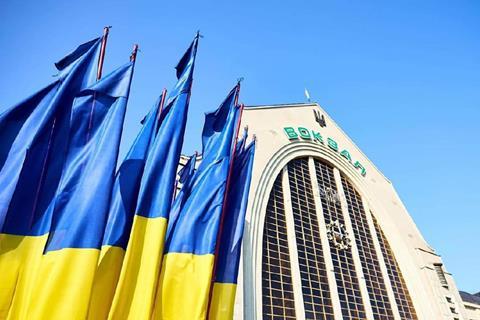
EUROPE: Major companies from the railway supply sector are weighing up the impact of Russia’s invasion of Ukraine.
Alstom
Alstom told Railway Gazette International that its ‘very limited’ business activities in Russia were geared towards the local market, with 30 employees in the country which accounts for less than 0·5% of group consolidated sales. It has 40 employees in Ukraine, and negligible sales. The company said the safety of its staff was the absolute priority.
Alstom owns a 20% stake in Russian manufacturer Transmashholding, which has a dominant position in the Russian passenger rolling stock market but mainly serves domestic customers with ‘very limited’ international sales.
Alstom said on March 1 that ‘we are closely monitoring the situation and its impacts on TMH’. It said TMH had made a €2m negative contribution to the group’s financial performance in the first half of its financial year. However, ‘no decision has been made on a possible divestment’.
Siemens Mobility
Siemens said it was ‘gravely concerned about the Russian military attack on Ukraine which is a clear violation of international law’, and was ‘humbled by the bravery of the Ukrainian people’. Emphasising that the safety of its employees was a priority, the company pointing out it could only evacuate people who are not under obligation to serve in the military.
It has made an initial donation of €1m to provide humanitarian aid, and is matching staff donations to the Siemens Caring Hands fund.
Siemens said it was ‘ensuring that we act in compliance with the new, broad sanctions. We comply with all applicable laws in our business activities in and with Russia and with the applicable export control requirements and sanctions law’. However, the ‘rapidly changing situation and the complexity of the sanctions’ meant it was unable to go into more detail about specific businesses or partner companies at this time.
Stadler
Stadler told Railway Gazette International that it has not yet received any orders from Ukraine, and currently has no orders from Russia in its order book and ‘accordingly does not expect any payment defaults’.
It has previously supplied 11 trains and 23 trams to Russia, and maintenance is carried out locally.
So far, there has been no disruption to production at Stadler’s Belarus factory which supplies the Belarus, CIS and other markets, but the company ‘is prepared for various scenarios and ready to implement possible immediate measures as part of its risk management’.
Of the original 1 500 employees in Belarus, around 300 jobs have been cut in recent months as a result of lower activity levels. The plant provides less than 10% of the group-wide production capacity, and less than 2% of Stadler’s SFr18bn order backlog is being processed in Belarus. The group’s flexible manufacturing footprint would allow production to be relocated from Belarus to the European Union ‘in a timely manner’ if required, the company explained.
Stadler said that as a non-government-affiliated company, it had not been affected by any sanctions to date. It would implement any embargoes which might be introduced, but ‘as long as the possible sanctions have not been defined and put into effect, specific effects and measures cannot be assessed and implemented’.
TMH International
Transmashholding’s overseas business TMH International said it was ‘a Swiss company, governed by the laws of Switzerland’, and its local subsidiaries in Germany, Hungary, Argentina, Egypt and South Africa were registered and governed by the laws of their respective country.
As such, TMH International is not subject to the sanctions which have been implemented. The company said it is ‘well integrated in the national rail ecosystems in our countries of presence’, being members of industry associations in Argentina, Germany and Switzerland and relying on local supply chains and partnerships with global suppliers of rail equipment for its international projects.
‘We wish to remind everyone that TMH International is privately owned and that neither the Russian government, nor any Russian state-owned companies have any interest or involvement in TMH International’, the company told Railway Gazette International, adding that none of its shareholders were subject to sanctions as of March 1.
Výzkumný Ústav Železniční
Výzkumný Ústav Železniční, which runs the Velim railway test centre in the Czech Republic, has terminated its business relationships with Russia and Belarus.
‘VÚŽ is a company based on two basic principles: impartiality and independence’, it said. ‘We feel bound to defend those principles not only at our work but also in all our acts and behaviour.
‘We consider the attack on Ukraine, where we have many respected business partners, as immoral, unscrupulous and barbarian; it is an attack on Ukraine’s independence. That is why we join the initiatives of the Czech government and EU and terminate all our business activities with Russia and Belarus.’
Wabtec
Wabtec said it was ’deeply concerned about the events and violence in Ukraine’, and closely monitoring the situation. ’Our priority is to support our employees in the region. We are doing all we can to assist them in this time of need’, said a spokesperson.

















